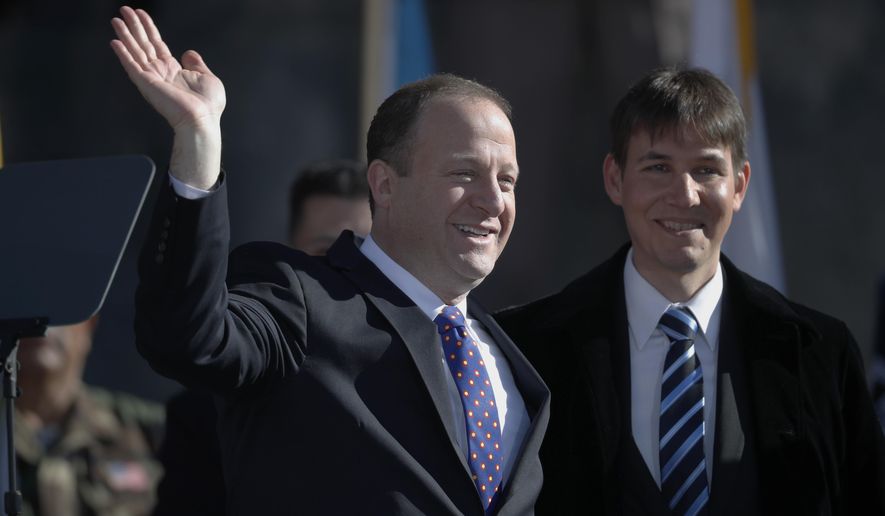DENVER (AP) - As Colorado’s Democrat-led Legislature convened Monday for a special session, a GOP staff member who tested positive for COVID-19 attended a morning House session and was sent home.
In response to the incident, Colorado House Speaker KC Becker, a Democrat from Boulder, called it a “reckless breach” of the Capitol’s safety protocols.
“The minority’s dangerous disregard for simple and effective protections and this staffer’s presence on the floor has placed the health of every lawmaker and member of staff at risk as we meet to pass critical legislation to help Coloradans get through this crisis,” Becker said.
House Republican leader Hugh McKean said that the Republican aide was cleared by a physician to work in person.
“After consulting with the Aide and finding that the test was performed on November 17th and cleared to return to work in person on the 24th, there should be minimal concern about their condition,” McKean said in a statement.
Democrats had encouraged, but not mandated, masks inside the Capitol during the session.
During the first day of the extraordinary session, a number of Republicans removed their masks while seated at their desks during committee meetings and on the floor. In another sign of partisan differences in response to the pandemic, a photo tweeted by Democratic Rep. Cathy Kipp shows Republican Rep. Larry Liston wearing a mask on his head.
Gov. Jared Polis called for the special session, citing Congress’ failure to pass a new coronavirus economic relief package and in order to pass bills offering sales tax relief and state grants to small businesses, tenants and public school districts affected by the pandemic.
Democratic lawmakers unveiled bills offering a combined $280 million to help small firms through the winter; sustain child care facilities; deliver rental and mortgage aid for landlords and tenants; and boost food pantry stocks.
The proposals also cover fortifying broadband and internet access for public school teachers and students; helping residents pay utility bills; and a $100 million transfer to by used by the state for mounting COVID-related public health expenses.
Lawmakers also are considering legislation to allow restaurants, bars and food trucks to keep state sales tax collections they otherwise would have to remit to the state, at least through February.
Many states want President Donald Trump and Congress to extend the Dec. 30 deadline for spending virus relief money already allocated under the federal coronavirus relief package approved in March, and to provide more federal funding to deal with the consequences of the latest surge.
In Denver, lawmakers and staff entering the Colorado capitol are being temperature-checked and can get rapid tests for the coronavirus. Public testimony is limited.
Polis, a Democrat, announced Saturday that he and first gentleman Marlon Reis tested positive for the coronavirus but are asymptomatic.
Under lawmakers’ consideration:
-$57 million in small business relief, including $37 million in direct payments, nearly $7 million to the state health department to cover local license fees for restaurants hit by capacity restrictions, and nearly $2 million to cover liquor license fees.
-A temporary state sales tax waiver for restaurants, bars and other food establishments.
-$45 million to support 2,600 child care centers.
-$50 million in housing assistance for landlords and residents to be used through June.
-$20 million in grants to school districts for broadband, Wi-Fi and other means to facilitate remote learning.
The emergency aid would come from higher than anticipated revenues in the current fiscal year state budget. Polis already has ordered that $375 stimulus checks be sent to those who received unemployment benefits from March to October. The money is expected to be sent out in early December.
The pandemic has killed more than 2,500 people in Colorado and infected more than 228,000, straining the state’s emergency hospital capacity.
The coronavirus causes mild or moderate symptoms for most people. But for some, especially older adults and people with existing health problems, it can cause more severe illness or death.
___
Nieberg is a corps member for the Associated Press/Report for America Statehouse News Initiative. Report for America is a nonprofit national service program that places journalists in local newsrooms to report on undercovered issues.




Please read our comment policy before commenting.